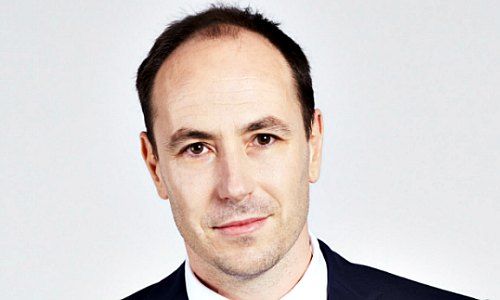Private jet firm VistaJet has its sights set on Asia. Ian Moore, the firm's commercial head tells finews.asia about on-board smoothies, and how the firm was impacted by the Chinese crackdown on wealth.
Ian Moore, tell me how Asia fits into your strategy.
Asia is our number-two growth region behind the U.S. and the good thing is that we continue to have a high-level growth seven years into this market, which gives us great confidence in the future.
Why is that?
The Asian market isn’t one where a lot of aircraft are being purchased: owning a private jet is not a thing you want to do right now. Forty percent of our new customers last year either previously owned a fractional share, or they owned their own aircraft.
«Owning a private jet in Asia? Not something you want to do right now»
In Asia, where fractional ownership doesn’t exist, one in every two customers are coming to us from an asset-heavy option, which has been a mega-trend in the last three years.
You’re referring to the crackdown on wealth in China?
We’re a political dream: people still want to fly privately, but are using it more as a business tool rather than private jet travel. We have to work on that impression that private jet travel is all champagne and caviar, rather than a business tool: you fly private to save time.
Has your business suffered as a result of that crackdown?
We’re not suffering because we’re seen as a private business tool. It’s about a shared economy, and holding a depreciating asset and not using it is a double whammy for any CFO. In addition, things like the Panama Papers have made people more aware that their «business» is always a couple of clicks away from becoming a lot more public.
«No asset risk and no asset trail»
A solution like ours leaves you with no asset risk or asset trail. You know exactly what you are going to pay with us. The security, privacy, and no downside asset exposure are the perfect way to approach Asia, where you need to fly private to get business deals.
Is this a generation issue too?
Yes. We’ve recently taken on probably a handful of new customers in Asia who perfectly fit the millennial segment in terms of age and mindset. This is a business that is easily understood by someone in the new economy.
«Uber has taught us how an asset-light model works»
Uber has taught us how an asset-light model and shared economy works. We take the asset risk. Millennials get that: the west coast of the U.S. is a hotbed, but Asia also where millennials are beginning to prefer asset-light as the preferred option over taking the financial risk of ownership.
What are those risks?
One is the very exaggerated point of asset prices, but it’s also actually really difficult to operate an aircraft: many people buy an aircraft for the convenience, but then find themselves setting up a company to maintain it and suddenly you own another business which employs eight to 10 people. It doesn’t add up and frankly that’s why Vista Jet exists.
What about the perks with private jet travel?
We do have a baseline, whether its the Christofle china or our association with Nobu. We’ve been successful because when a client signs, we begin building a profile.
«Cristal and caviar was the late 90s»
It’s really important to ask on a flight-to-flight basis, where do you usually eat, if you owned this aircraft, where would you get the food? It sounds obvious, but to give that level of service at 1,600 airports on 24 hours notice is very sophisticated.
So it’s not all Cristal champagne and caviar?
That’s a late 1990s view of private jets. Now, it might be setting a theme in the cabin because you have your kids with you for a family trip, it might be a one-hour gap between flights and the client wants to be left alone with a cup of tea or coffee. That luxury is what the client is looking for.
«Paleo or plant-based rather than three-courses»
In general, we’re less likely to serve alcohol and more likely to serve a paleo or plant-based meal rather than a heavy three-course one as people grow more health-conscious. These are basically business tools, and if you use them in an efficient manner they should save you time.
«It's not a luxury pod to indulge yourself»
It’s not a luxury pod to indulge yourself – the people who fly with us can indulge anytime. They’d rather have an extension of their everyday lifestyle.
But surely there are some indulgences?
I’m a pet lover, so what I see as normal – like flying your dog around the world for surgery – might be seen as an indulgence by others.
«Make someone feel local»
Our main vision is to make someone feel like they’re local: a dish from their hometown that you manage to find 10,000 miles away – that’s more what we try to surprise our customers with. They’re not looking to us to deliver from a luxury perspective, but they do want consistency.
You’re privately held. What can you tell me about your results?
We don’t disclose our profits, but we have been profitable since inception. Our revenue growth was roughly 20 percent last year, and we added 15 aircraft to our fleet last year, an increase of 26 percent. Where most others are rationalizing or flat, we’re growing.
Any growth projections?
We’re coming to the end of and investment cycle that began around 2012. We’re looking forward to taking delivery of new aircraft and be in position to continue to use fleet for growth. We don’t see much evidence of the growth from the last four or five years tailing off at all.
Who are your competitors?
Regionally, it is full aircraft sales. We’ve lost out when someone gets a deal on the market from a distressed seller.
«Eye-watering low prices aren't sustainable»
Everyone has the dream of flying for free. The reality is you never do. Secondly, there are a few fractional ownership companies in the U.S. we compete with, as well as in Europe.
Then, the local charter market is a competitor, simply because they offer eye-watering low prices. I don’t see that development as sustainable in the long run.
Ian Moore has been Chief Commercial Officer of Malta-based VistaJet since 2010. The Australian native is responsible for expanding the private jet travel firm globally, sales, customer service and «cabin experience». Moore, who studied commerce at the University of Melbourne. previously worked for Berkshire Hathaway's NetJets and TATA's business jet subsidiary. VistaJet is owned by founder and chairman Thomas Flohr.


























